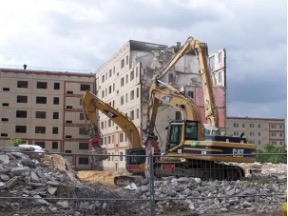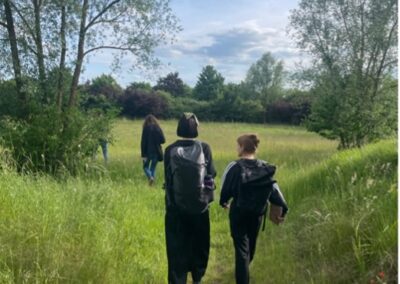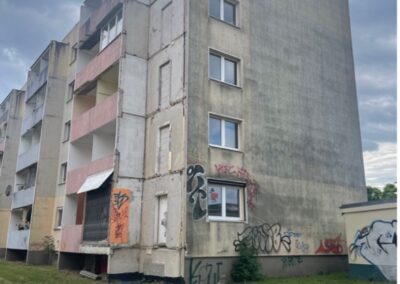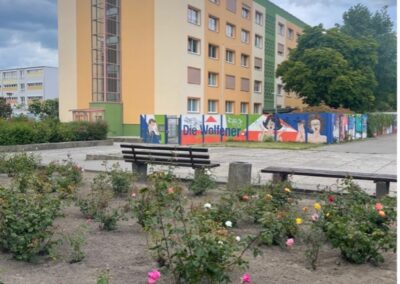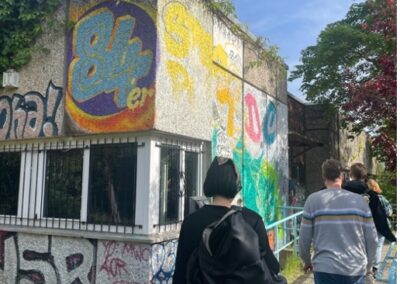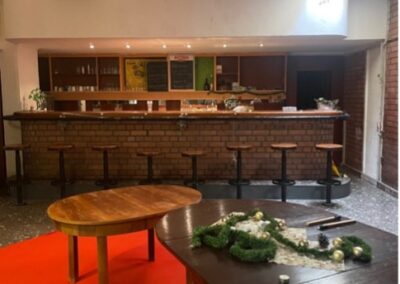Report from our field trip to Bitterfeld-Nord with Revier Scout Christian Hennicke.
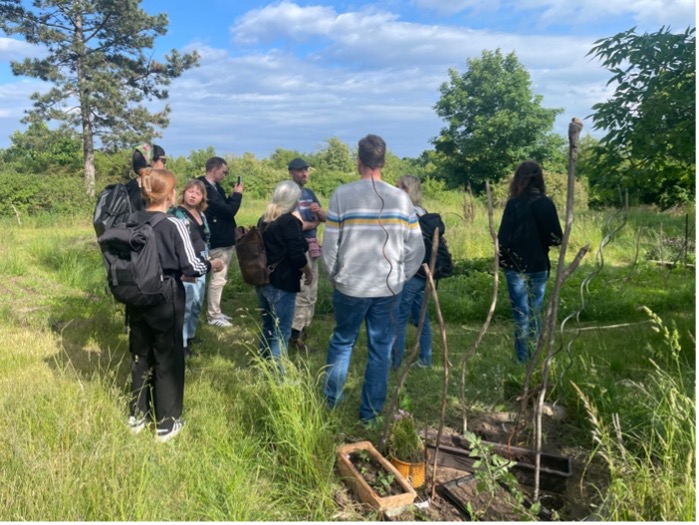
Excursion to Bitterfeld-Wolfen: Between Demolition, Memory, and Engagement
On May 27, 2025, a small group from the JTC – organized by Revier Scout Christian Hennicke (for Team A6, with participation from A1 and A3) – undertook an excursion to Wolfen-Nord, a district of Bitterfeld-Wolfen. Once built as (chemical) workers’ residential town in the GDR, the area today is marked by large-scale demolition, demographic change, and struggles for positive futures.
Our guided tour was led by Conny Geißler, an active figure in local youth work. She gave us a vivid insight into the social challenges Wolfen-Nord faces, but also the impressive civil society engagement that advocate for participation, inclusion, and new perspectives. This made the excursion – with its consistent social focus – particularly relevant for the work of the JTC’s A-Pillar.
Especially striking were the insights into vacancy and demolition measures in the neighborhood – such as the “Abtreppung” of prefabricated housing blocks, in which upper floors or entire wings are removed. In contrast, large areas of wasteland, now partly reclaimed by nature, gave the district a peculiar and almost otherworldly atmosphere.
Our tour stops included Frauen helfen Frauen (Women Helping Women), the Mehrgenerationenhaus (multi-generational center), and the association Wolfen-Nord e.V., where we were introduced to projects on women’s and neighborhood support, integration, community gardens, and experimental forms of housing.
An emotional highlight was the visit to the former youth club “84er”. Currently largely unused but cared for by Wolfen-Nord e.V., the building evokes strong memories among former visitors and is envisioned as a future socio-cultural center.
Between withdrawal and engagement, loss and hope, Wolfen-Nord exemplifies the social dimensions of structural change. The excursion offered diverse perspectives on a district in transition – a place where change is inscribed in spaces, biographies, and initiatives, shaped by strong civic actors, memory work, and the struggle for participation under the shadow of vacancy and shrinkage.
Cheyenne Wolf (A1 – Structural Change and Participation)
